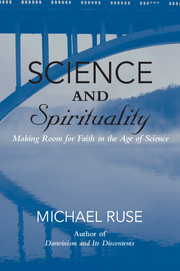Book contents
Introduction
Published online by Cambridge University Press: 05 May 2010
Summary
Steven Weinberg, winner of the Nobel Prize in physics for combining electromagnetism and the weak force into the electroweak force, has a deservedly high profile. He is respected not just as a very good scientist but also as one who is able to communicate the most technical aspects of his work to the general public. His book The First Three Minutes (1977), about the early history of our universe, is a dazzling display of expertise combined with a brilliant ability to explain complex ideas without at any point trivializing them or condescending to his audience. Rightfully, he has assumed the mantle of a leading spokesperson for science. When he speaks, he speaks with authority. One should therefore take him seriously when he speaks, as a scientist, about so important a topic as religion. And spoken he certainly has. In 1999, in a dialog on religion with another scientist (Sir John Polkinghorne), he said: “Religion is an insult to human dignity. Without it you would have good people doing good things and evil people doing evil things. But for good people to do evil things, that takes religion.” Also speaking as a scientist, he tells us: “This is one of the great social functions of science – to free people from superstition” (see Weinberg 2001, 231, for a printed version). Let there be no mistake, the greatest superstition of them all is religion.
- Type
- Chapter
- Information
- Science and SpiritualityMaking Room for Faith in the Age of Science, pp. 1 - 10Publisher: Cambridge University PressPrint publication year: 2010

